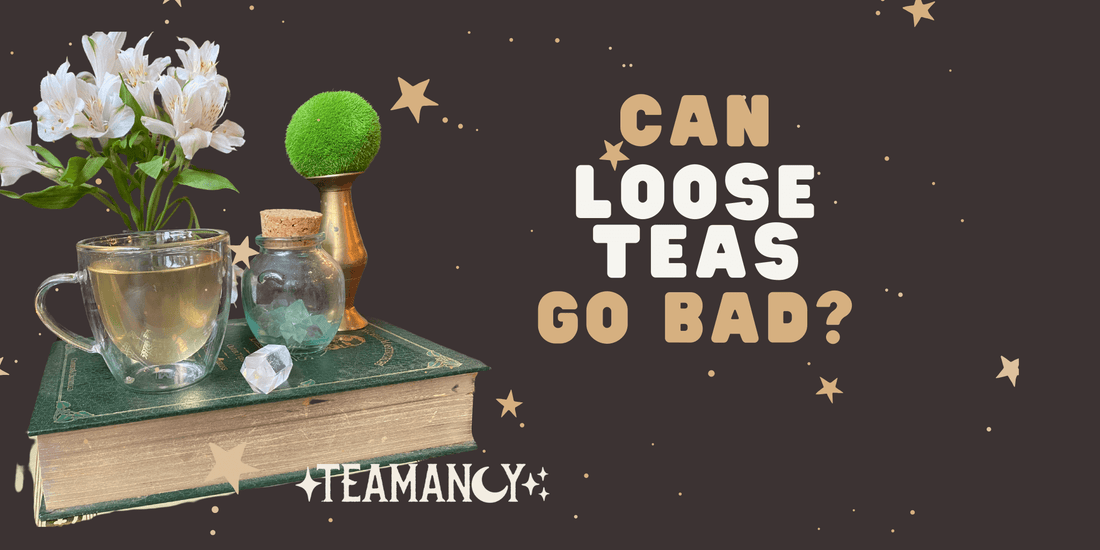
Can loose leaf tea go bad?
Exploring the Shelf Life of Loose Leaf Tea: Can It Go Bad?
When it comes to the longevity and freshness of loose leaf tea, there's a mix of art and science in ensuring that each cup maintains its delightful aroma and robust flavor. A common query among tea enthusiasts is whether their cherished loose leaf teas can expire or "go bad." To address this, let's steep ourselves in the facts about the shelf life of loose leaf tea, with insights from Teamancy, a purveyor of premium teas.
The Aging Process of Loose Leaf Tea
Loose leaf tea, unlike many perishable foods, doesn't spoil in the conventional sense where consuming it could lead to foodborne illnesses. However, tea is a natural product, and its quality can diminish over time. Factors such as exposure to air, light, moisture, and strong odors can affect the tea's freshness, leading to a loss of flavor and aroma. While not necessarily "bad" in a harmful way, aged tea may not provide the sensory experience tea lovers seek.
Indicators of Aged Tea
- Loss of Aroma: One of the first signs that a tea is past its prime is a noticeable decrease in its aromatic qualities. If the tea loses its characteristic scent, it's a clear indicator that it has started to age.
- Diminished Flavor: Similarly, if the tea tastes stale, flat, or has lost the nuances of its flavor profile, it has likely degraded due to improper storage or simply the passage of time.
- Physical Changes: Any visible signs of dampness, mold, or a drastic change in color suggest that the tea has been adversely affected by moisture or contaminants and should not be consumed.
Maximizing the Freshness of Loose Leaf Tea
Teamancy advocates for proper storage and care to extend the shelf life of loose leaf tea. Here are some tips to keep your teas at their best:
- Airtight Containers: Store your tea in containers that seal tightly to keep air and moisture out. Materials like tin, glass, or ceramic with airtight lids are ideal.
- Cool, Dark Places: Tea should be kept away from direct sunlight and heat sources. A pantry, cabinet, or drawer can provide the perfect environment.
- Away from Odors: Tea leaves can absorb smells, so it’s important to store them away from spices, coffee, or any strongly scented items.
- Consider Quantity: Buy tea in amounts that you will reasonably consume within a few months to a year to enjoy it at its freshest.
The Role of Tea Type in Shelf Life
It's worth noting that the type of tea can influence its longevity. Green and white teas, with their delicate processing, generally have a shorter shelf life compared to more oxidized teas like black and oolong. Pu-erh teas, known for their aging potential, can actually improve over time. Teamancy offers a wide range of teas, providing guidance on how to best enjoy and preserve each variety.
Conclusion
While loose leaf tea doesn’t go bad in the way perishable foods do, its quality can degrade over time. By understanding the factors that impact the freshness of tea and following best practices for storage, tea enthusiasts can ensure their brews remain vibrant and flavorful. With Teamancy's commitment to quality and education, tea lovers can navigate the nuances of tea storage and enjoy their favorite blends to the fullest.

